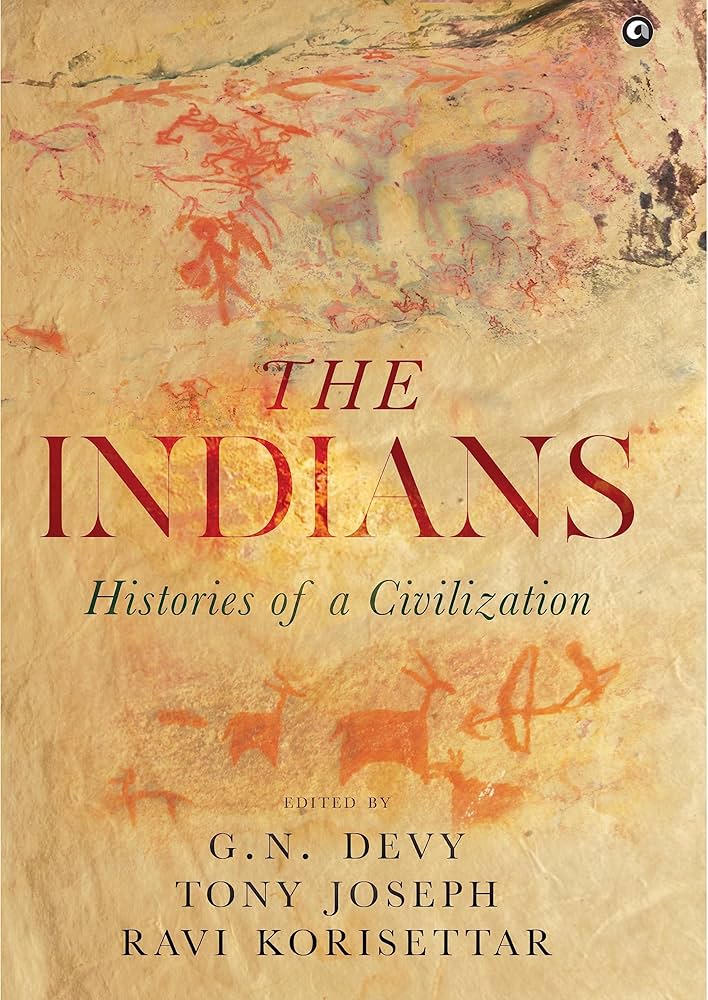
Availability
available
Original Title
The Indians: Histories of a Civilization
Subject & College
Publish Date
2001-01-01
Published Year
2001
Publisher, Place
Total Pages
320
ISBN 13
9780140192281
Format
Paperback
Country
India
Language
English
Average Ratings
Readers Feedback
The Indians: Histories of a Civilization
Book Review : Bagul Rakesh, MGV's Loknete Vyankatrao Hiray Arts Science and Commerce College Panchavati Nashik David J. Lelyveld’s *The Indians: Histories of a Civilization*...Read More
Bagul Rakesh
The Indians: Histories of a Civilization
Book Review : Bagul Rakesh, MGV’s Loknete Vyankatrao Hiray Arts Science and Commerce College Panchavati Nashik
David J. Lelyveld’s *The Indians: Histories of a Civilization* provides an expansive, nuanced exploration of India’s long and diverse history. The book is not merely a recounting of events but a comprehensive analysis of the various civilizational forces that have shaped the subcontinent over millennia. Through the lens of both ancient and modern history, Lelyveld skillfully weaves together the cultural, social, and political fabric of India, offering readers a deep understanding of the complexity of the Indian civilization.
One of the book’s central themes is the fluidity and diversity that have always defined India’s civilization. Lelyveld takes a multidisciplinary approach, analyzing historical events, cultural practices, philosophical traditions, and societal structures. He brings together historical narratives, religious developments, and political shifts, presenting them not as isolated occurrences but as interwoven moments that have collectively contributed to the fabric of Indian civilization.
The author takes readers back to the earliest traces of Indian history, examining the ancient Indus Valley civilization, which laid the groundwork for many of India’s future cultural and technological developments. Lelyveld explores how the emergence of major religions like Hinduism, Buddhism, Jainism, and later Islam, influenced not only the spiritual but also the social and political landscape of India. His detailed discussion of religious pluralism in India is particularly valuable, as it highlights the country’s historical ability to accommodate different belief systems in complex, sometimes conflicting, ways.
One of the strengths of Lelyveld’s work is his treatment of India’s colonial history. While British colonialism is often examined from a purely political and economic standpoint, *The Indians* delves into the cultural and intellectual effects of colonialism. Lelyveld explores how British imperialism profoundly affected Indian society, reshaping everything from social hierarchies to intellectual thought. He does not shy away from analyzing the contradictions within Indian responses to British rule, including both collaboration and resistance. This nuanced understanding of colonialism enriches the book’s narrative, making it clear that India’s journey to independence was not a linear progression but a complex process shaped by various forces.
Lelyveld also offers a critical examination of modern India, particularly post-independence, focusing on the challenges the country faced in building a unified nation-state out of such diverse regional, linguistic, and religious communities. He probes the complexities of India’s political landscape, highlighting the roles played by figures such as
Jawaharlal Nehru and Mahatma Gandhi, while also addressing the long-standing tensions that continue to affect India’s democratic processes.
Another notable aspect of the book is Lelyveld’s balanced approach to India’s internal conflicts. He addresses issues such as caste, gender inequality, and religious intolerance with a keen awareness of their historical roots and ongoing impact. Rather than presenting India as a monolithic entity, Lelyveld recognizes the deep-seated divisions within the country, underscoring the ways in which they have shaped its contemporary realities.
The writing style of *The Indians* is scholarly yet accessible. Lelyveld uses a clear and engaging narrative voice, making complex historical concepts and events digestible for both academics and general readers. The book’s structure, while chronological, is not rigidly linear, allowing for thematic explorations that offer a richer understanding of India’s multifaceted history.
Despite the book’s many strengths, there are moments when the sheer scope of Lelyveld’s subject matter leads to some overgeneralizations. In attempting to cover such an extensive history, certain periods and events could have been explored in greater depth. However, given the vastness of India’s history, the author’s approach of highlighting key themes and figures allows for a comprehensive yet succinct treatment.
In conclusion, *The Indians: Histories of a Civilization* is an invaluable contribution to the literature on India’s history. It offers readers a holistic understanding of the forces that have shaped the Indian subcontinent from ancient times to the modern era. Lelyveld’s ability to synthesize a vast array of historical, cultural, and intellectual currents into a coherent narrative makes this book a must-read for anyone seeking to understand India’s rich and complicated past. Whether for students of history or casual readers, *The Indians* provides a thought-provoking and informative journey through one of the world’s oldest and most dynamic civilization
